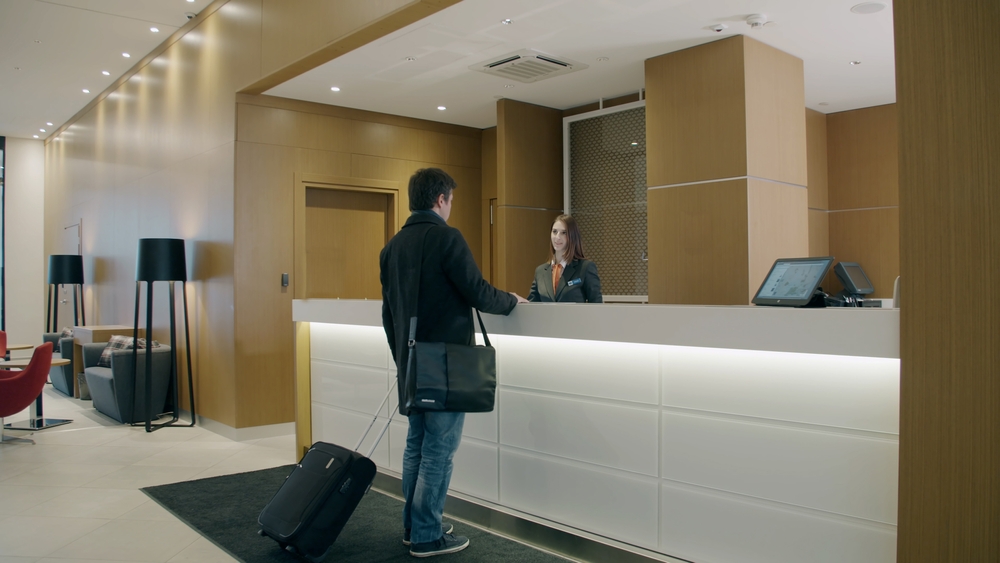Working remotely has opened up new possibilities beyond flexible schedules and home offices. For many people, it’s also become a potential way to live in another country legally. As more governments create visa programs for digital professionals, questions about immigration and remote jobs continue to grow.
Advertisement
If you’re earning a steady income online and thinking about moving abroad, you may be wondering: Can Remote Work Help You Qualify for Immigration? Here’s the Truth. This guide explains how remote work plays a role in visa applications, which countries support it, and what you need to apply. It’s simpler than you might think.
Can Remote Work Help You Immigrate?
Yes, remote work can help you qualify for immigration in certain countries. While it doesn’t guarantee a visa, it supports your application for digital nomad or self-employment visas. Countries offering these visas often want proof that you earn a steady income without needing a local employer. Remote work fits that perfectly.

It shows you’re financially stable, location-independent, and not a burden on the country’s job market. If your income is legal and meets the country’s minimum requirement, remote work can be your ticket to living abroad legally and long-term. Just be sure to follow that country’s immigration rules.
- Yes, in some cases, remote work can support your immigration process.
- It depends on the country, the visa type, and your job.
- Remote work alone doesn’t automatically qualify you, but it can make you eligible under digital nomad, self-employment, or income-based residency visas.
Read: Building a Financial Safety Net Before Moving Abroad
Countries That Welcome Remote Workers
Several countries now offer remote work visas. Portugal allows remote workers with stable income to apply for its D7 visa. Spain has a Digital Nomad Visa for foreign professionals. Estonia also offers a similar visa for freelancers and remote employees. Germany supports freelancers in the creative and tech fields.
Costa Rica has a Rentista Visa and a specific visa for remote workers. UAE provides a 1-year remote work visa for digital workers. Each country sets its own income threshold and conditions, but they all value remote workers who bring income from outside and contribute locally without taking local jobs.
List of countries offering digital nomad visas or remote work-friendly residency:
- Portugal: D7 visa (for remote workers with stable passive or freelance income)
- Spain: Digital Nomad Visa (for foreign remote workers earning outside Spain)
- Estonia: Digital Nomad Visa (for remote employees or freelancers)
- Germany: Freelance Visa (for certain professions with remote income)
- Costa Rica: Rentista or Remote Work Visa (for stable income earners)
- United Arab Emirates: Remote Work Visa (1-year residence for remote professionals)
- Include key income requirements and eligibility in a simple list or table
How Remote Work Helps With Immigration
Remote work gives you a strong edge in qualifying for modern immigration pathways. First, it shows financial independence—governments want to see that you won’t need welfare or local jobs. Second, it proves a steady income stream, which many income-based visas require. Third, it removes the need for local job sponsorship, a major hurdle in traditional work visas.
Fourth, remote work supports long-term goals like residency or even citizenship, as your income keeps you compliant with financial requirements over time. Many countries now design visas for people like you—remote professionals earning online and spending money in the local economy.
- Proves Financial Stability: Countries want proof that you can support yourself
- Shows Consistent Income: Helps with income-based visa types
- Removes Employer Sponsorship Requirement: Gives you freedom to apply as an independent worker
- Supports Long-Term Residency Plans: Remote income can help with paths to permanent residency in some countries
Visa Types That Work for Remote Workers
Remote workers usually don’t qualify for regular work visas, but there are better options. Digital Nomad Visas are designed for remote employees and freelancers. Freelance or Self-Employment Visas allow you to stay legally as long as you prove consistent income. Some countries offer retirement visas that accept passive or remote income.
Income-based residency programs approve applicants based on their financial proof alone. If you own a remote business, you may also qualify for entrepreneur visas. Each visa has different rules, but if you earn money remotely and meet the income threshold, you can legally live in another country.
- Digital Nomad Visas
- Freelance or Self-Employment Visas
- Retirement Visas (with remote income accepted)
- Income-Based Residency Programs
- Entrepreneur or Business Visas (if you’re a remote business owner)
Basic Requirements to Qualify with Remote Work
To use remote work for immigration, you need to meet a few common requirements. Most countries ask for proof of monthly income, usually between $2,000 and $3,500. You must show work contracts, client invoices, or bank statements. Health insurance is often mandatory. Some countries also want a clean criminal record and proof of accommodation.

You might also need to prove your remote job is legitimate and long-term. If applying for a freelance visa, a portfolio or letters from clients may be required. Gather all these documents before applying to improve your chances of approval and avoid unnecessary delays.
- Minimum income proof (varies by country: e.g. $2,000–$3,500/month)
- Remote job contract or proof of freelance clients
- Health insurance coverage
- Clean criminal record
- Proof of accommodation in the destination country
Read: How to Navigate Cultural Differences in International Workplaces
Common Mistakes to Avoid
One major mistake is assuming remote work lets you apply for a standard work visa it usually doesn’t. Those visas require a local job offer. Another mistake is not showing steady income. Governments want to see at least a few months of bank statements or contracts.
Also, working remotely while on a tourist visa can get you fined or banned. It’s illegal in most countries. Lastly, many applicants forget to check tax obligations. If you stay too long, you may need to file taxes locally. Always read the fine print or speak to an advisor before applying for any visa.
- Assuming remote work qualifies you for a work visa (it usually doesn’t)
- Applying without showing a consistent income history
- Using tourist visas while working remotely long-term (this is illegal in most countries)
- Not checking tax rules some countries will tax your remote income
Best Remote-Friendly Jobs That Qualify
Not all remote jobs qualify for immigration support, but many do. The most common include software developers, graphic designers, and content creators. Digital marketers, SEO specialists, and online consultants are also well-accepted. If you teach online or offer virtual assistance, you can apply too. Freelancers with consistent client work or contracts do well.
The key is to show reliable, ongoing income from outside the country you’re applying to. High-demand digital skills are especially welcome. If your job can be done entirely online and you earn enough monthly, there’s a good chance it qualifies under most remote work visas.
- Software development
- Design and creative services
- Marketing and SEO
- Writing and content creation
- Virtual assistance
- Online teaching and tutoring
- Remote consulting
Important Legal and Tax Considerations
Working remotely from another country has legal and tax rules you can’t ignore. Some countries require you to pay local taxes if you stay more than 183 days. Others might not tax your income if you don’t earn it locally. Still, your home country may also expect taxes, so check for double taxation agreements.
Not reporting income correctly can lead to fines or visa problems. Make sure your visa allows you to work remotely tourist visas often don’t. Also, get health insurance that meets the country’s requirements. To stay compliant, consider speaking with a tax or immigration lawyer before moving.
- Some countries require you to pay local taxes if you stay long enough
- You may still owe taxes in your home country
- Always check double taxation agreements
- Hire a legal or immigration advisor if unsure
Steps to Apply for Immigration with Remote Work
Start by choosing a country that offers a visa for remote workers. Check the official website for visa options and requirements. Make sure you meet the income threshold and can provide proof of bank statements, contracts, or pay stubs. Gather all documents: passport, insurance, background check, and housing proof.
Some countries require you to apply online, others through embassies. Submit your application and wait for approval. Don’t move until you get the visa, especially if working remotely is not allowed on a tourist visa. Once approved, follow any local registration steps required. Stay compliant to avoid legal or tax issues.
- Choose your country and visa type
- Check eligibility requirements
- Gather income proof, rework work contraand the candidate’s, health insurance
- Apply through the official immigration portal or embassy
- Wait for approval before making travel plans
Is Remote Work a Reliable Path for Immigration?
Yes, remote work can be a real and reliable path to legal immigration if you use the right visa and meet the income rules. More countries now welcome remote professionals who bring money into their economy without taking local jobs.

It’s not automatic, and you must apply through official channels, but with the right documents and income, your remote job can support long-term stays or even permanent residency.
- Yes, remote work opens doors to immigration but only if you meet the rules of the destination country.
- Choose the right visa, prove your income, and follow the process.
- It’s not a shortcut but it’s a strong, growing option for global mobility.
Read: Remote Jobs as a Stepping Stone to Permanent Residency
Remote work can support your immigration goals if you meet the right conditions. Many countries now offer visas for remote workers, freelancers, and digital nomads. These programs often require proof of steady income, health insurance, and a clean background. While remote work alone doesn’t guarantee a visa, it can make you eligible for residency in countries like Portugal, Spain, Estonia, and others.
By choosing the right visa type and meeting basic requirements, you can legally live and work abroad. This guide explains how remote income helps and what steps to follow for a smooth and legal immigration process.


